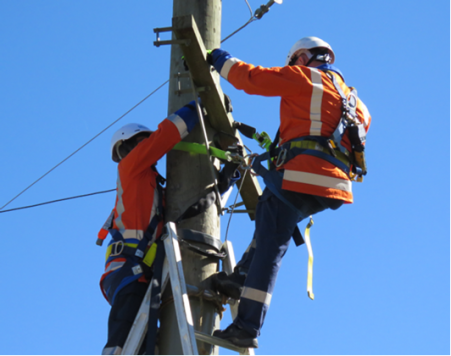-
Employment and skills
-
Employment legislation reviews
- Employment Relations Act 2000 amendments
- Holidays Act reform
- Increasing the minimum sick leave entitlement
- Workplace relations in the screen industry
- Forced Labour Protocol
- Extending paid parental leave
- Equal Pay Amendment Act
- Law change for Easter Sunday shop trading
- Employment Standards Legislation Act
- Proposed Accident Compensation Appeal Tribunal
- Accident compensation dispute resolution review
- Reviewing regulated ACC payments for treatment
- Employment Relations Amendment Act
- Minimum wage reviews
- Sex work in New Zealand
- Changes to the process for setting pay for Members of Parliament
- Security officers – additional employment protections
- Matariki
- Updating Accident Compensation Review Costs Regulations
- Queen Elizabeth II Memorial Day
- Changes to ACC’s Accredited Employers Programme
- Review framework for list of occupational diseases
- Contractor work in Aotearoa New Zealand
- Support workers – request for additional employment protections
- Changes to ACC regulations for Chinese medicine, paramedics and audiometrists
- Accident Compensation (Interest on Instalments) Amendment Act
- Setting the average ACC levy rates for 2025/26, 2026/27, and 2027/28
- Employment Action Plan
- Health and safety
- Our international labour relations
- Employment website
- Labour market reports, data and analysis
- Future of Work Tripartite Forum
- NZ Industrial Relations Foundation
- Plan of action against forced labour, people trafficking and slavery
- Fair Pay Agreements legislation
- Employment Strategy 2019
- Discussion document: NZ Income Insurance Scheme summary
- ACC Performance Review
-
Employment legislation reviews
Energy safety
We administer the safety-related provisions of the Electricity Act 1992 and Gas Act 1992 and associated safety regulations.
On this page I tēnei whārangi
The purpose of the Acts
The Electricity Act 1992(external link) and Gas Act 1992(external link) set the legislative framework and requirements for electricity and gas safety (energy safety) from supply through to end use.
The purpose of these 2 laws is to protect the public and workers, as well as to prevent property damage from the supply and use of electricity and gas. Its coverage includes the safety of electrical and gas appliances and fittings at the time of sale or supply.

WorkSafe's role
WorkSafe’s Energy Safety team is the regulator for energy safety and is responsible for:
- raising awareness of energy safety risks and legislative requirements;
- providing guidance to support duty holders to control energy safety risks and comply with their legal obligations; and
- monitoring compliance with legislative requirements and undertaking enforcement action where necessary.
WorkSafe: Energy safety(external link)
Electricity (Safety) Regulations 2010
The Electrical Safety Regulations, supported with information and guidance from WorkSafe, govern electrical safety. They are intended to help businesses understand how to manage particular electrical hazards.
These regulations do the following:
- gather together and state the generic rules and requirements for electrical safety and what is deemed to be electrically safe and unsafe
- deal with the design, construction and use of works, installations, fittings and appliances
- deal with the importation and sale of fittings and appliances
- provide for installations to be designed and installed under AS/NZS 3000 (the Wiring Rules)
- define requirements for safety management systems
- set out in the standards applicable to the regulations, with a focus on adopting international standards.
Electricity (Safety) Regulations 2010(external link)
Gas (Safety and Measurement) Regulations 2010
The Gas Safety and Measurement Regulations prescribe:
- the general rules and requirements about safety
- the point of supply
- requirements for safety management systems that operators of gas supply systems must meet. This includes setting the 'brightline' for which gas supply systems are required to have a safety management system
- the certification regime for gas appliances.
Gas (Safety and Measurement) Regulations 2010(external link)

